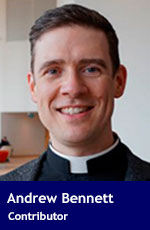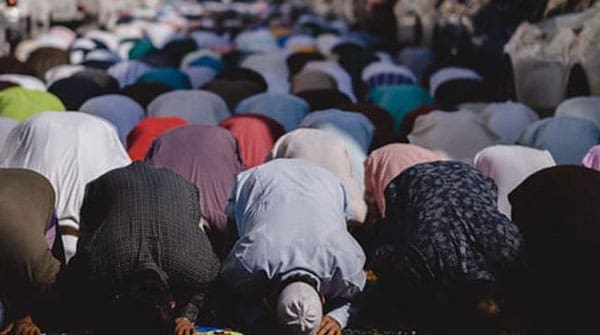 The news from London, Ont. regarding a murdered Muslim family is horrifying. It is chilling even to write about a driver deliberately ramming his pick-up truck into a father, mother, grandmother, daughter, and son – leaving only the young boy alive but bereft of his family.
The news from London, Ont. regarding a murdered Muslim family is horrifying. It is chilling even to write about a driver deliberately ramming his pick-up truck into a father, mother, grandmother, daughter, and son – leaving only the young boy alive but bereft of his family.
The police-reported motivation behind the crime should make it more shocking still for every Canadian.
“We believe the victims were targeted because of their Islamic faith,” said London Police Chief Steve Williams. It is easy in a secular society like ours to miss the depth of the police chief’s statement. Why?
Why are we so deeply shocked by such a heinous attack? It is because we understand at the heart of our being that this strikes at the very core of what it means to live together in human community. It undermines our freedom as human persons to live both publicly and privately according to our most deeply held beliefs, be they religious or secular.
For many Canadians, religion is a private or cultural matter. It is something some odd folks do on certain days inside a particular building with architecture and symbols that seem out of place (or confusing). It may involve dressing in ways that clash with the wider culture.
But religion and faith are much more than what happens behind the closed doors of a mosque, temple, synagogue, or church. They represent Canadians’ efforts to pursue, conform themselves to, and act on the truth.
These things are so fundamental that Canada constitutionally guards freedom of religion and conscience – the ability of individuals and institutions to act publicly and privately according to their deepest held theological, ethical, and moral beliefs. In turn, this informs the protection of public speech, association, and assembly.
Freedom of religion and conscience applies to all Canadians regardless of belief because it acknowledges that as human persons we seek truth.
So, when we are told that members of a Muslim family have been murdered because of their faith it should matter to more than just other Muslims. It should matter to all of us.
More importantly, it should spur all Canadians to ask themselves how fully committed they are to true freedom of religion and conscience. Part of that commitment means to defend the freedoms of those who hold beliefs different to our own, even if we profoundly disagree with them. To do so is to acknowledge their dignity as humans.
How much room do we make in our hearts and minds for public expressions of faith with which we may disagree?
How will we truly preserve and enhance expressions of faith in public spaces, including street corners, educational institutions, workplaces, and even our legislatures?
Will the rest of Canada follow the path Quebec has taken by banning and privatizing religious expression in public places?
The privatization and marginalization of faith does not make life safer or fairer. Quite the opposite, it simply sets religious Canadians apart from wider society. It tells them they don’t fit. It forces them to hide. If we’re honest, we’ll also admit it makes them more of a target for those who would act on a hatred of who religious Canadians are and what they believe.
We can – and must – be better in Canada.
We can seek to know more about others’ religious faith, including how its healthy expression looks in society. When Cardus collected stories and profiles of faith-based initiatives in Canada, we found multiple examples of how Canadians of faith serve others and, in doing so, help to restore, sustain, and build our communities.
Given the terrifying events in London, it is worth recounting the Canadian activities of Ismaili Civic, an initiative of the Shi’a Ismaili Muslim community.
Motivated by their faith, Ismaili Civic has corralled the efforts of its volunteers to create partnerships with seventy organizations, including Habitat for Humanity, Kids Help Phone, the United Way, and the Terry Fox Foundation. The organization donated more than 22-thousand pounds of food to shelters through Ramadan food-bank drives across the country during May 2020 to provide help in the time of COVID. Its volunteers sewed tens of thousands of masks for hospital, care home, and food bank staff.
Yes, our minds reel at the thought of a murderous driver running down a Muslim family in southwestern Ontario. Our hearts yearn to comfort a boy now left without his immediate family.
But our commitment must be for a better tomorrow where all Canadians feel safe to live their faith publicly.
Rev. Dr. Andrew P.W. Bennett is Director of the Cardus Religious Freedom Institute and Cardus’s Director of Faith Community Engagement.
Andrew is one of our Thought Leaders. For interview requests, click here.
The views, opinions and positions expressed by columnists and contributors are the authors’ alone. They do not inherently or expressly reflect the views, opinions and/or positions of our publication.
© Troy Media
Troy Media is an editorial content provider to media outlets and its own hosted community news outlets across Canada.

